SWEDISH
SOUTH ASIAN STUDIES NETWORK
Newsletter 119:
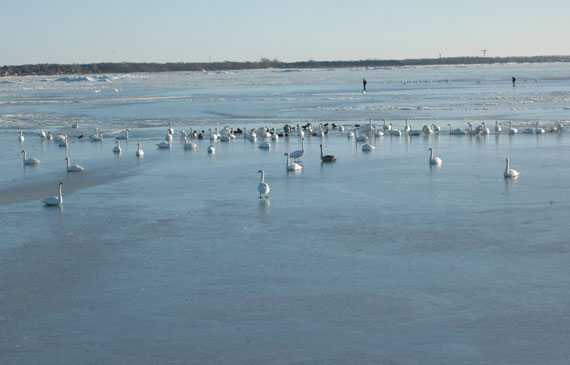 20 January 2011
20 January 2011
| Educational News |
| Lectures and seminars |
| Business and Politics |
| South Asia related Culture |
| New and updated information |
• Julia Velkova employed as SASNET Acting Deputy Director
 SASNET’s permanent deputy director Lars Eklund has been engaged as a tour guide on part-time basis for the Swedish Stockholm based travel agency Indienresor.
He will lead his first group of Swedish travellers for a grand tour all around India from end-January till mid-February 2011 (more information about Stora Indienresan). After that he will also spend a few weeks in his second hometown Kolkata.
SASNET’s permanent deputy director Lars Eklund has been engaged as a tour guide on part-time basis for the Swedish Stockholm based travel agency Indienresor.
He will lead his first group of Swedish travellers for a grand tour all around India from end-January till mid-February 2011 (more information about Stora Indienresan). After that he will also spend a few weeks in his second hometown Kolkata.
During Lars’ absence from SASNET, Ms. Julia Velkova (photo) from Gothenburg works as Acting Deputy Director for SASNET during the period 21 January – 2 March 2011. Julia has a background from Bulgaria, where she has obtained an MA degree in Eastern Philosophy and Culture with focus on India. She is currently pursuing a second masters degree in Communication for Development at the School of Arts and Communication, Malmö University.
Julia has a keen interest in developing the relations between South Asia and Europe, as well as working with projects for social change through art and technology. She has previously worked for SASNET by organising the Second Nordic Conference on South Asian Studies for Young Scholars held in August 2010.
Besides, she has
experiences from project assignments with the Gothenburg Dance & Theatre Festival, and the free theatre group Aktör & Vänner where she was responsible for the coordination of international collaborations, fundraising and website maintenance. Finally and not the least important, she has 10 years of experience of working with IT for development in the Balkans, former Soviet states and Europe, as well as with overall project coordination.
• SASNET organises Rabindranath Tagore 150th anniversary celebration week in Lund
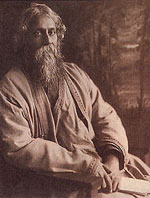 During 2011, SASNET is strongly involved in planning for academic seminars and related cultural programmes in connection with the 150th birth anniversary celebrations of Rabindranath Tagore at several Scandinavian universities, including Lund University.
During 2011, SASNET is strongly involved in planning for academic seminars and related cultural programmes in connection with the 150th birth anniversary celebrations of Rabindranath Tagore at several Scandinavian universities, including Lund University.
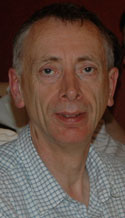 Preliminary, these seminars will take place in September 2011
in collaboration with the Indian embassies in Scandinavia, and with support from the Indian Council for Cultural Relations (ICCR). Leading South Asian Tagore scholars have alreday been invited for these occasions. More information will follow in due time.
Preliminary, these seminars will take place in September 2011
in collaboration with the Indian embassies in Scandinavia, and with support from the Indian Council for Cultural Relations (ICCR). Leading South Asian Tagore scholars have alreday been invited for these occasions. More information will follow in due time.
SASNET will however organise a Tagore week in Lund already 20–24 March 2011. In collaboration with other local institutions and organisations, the week includes popular lectures by Swedish experts on Rabindranath’s life and literature, as well as exhibitions, film shows, concerts and poetry reading. On Thuesday 22 March, SASNET and Lund University organise an academic seminar, featuring Prof. Wiliam Radice (photo) from SOAS, University of London. Prof. Radice, who has made new inspiring translations of Tagore’s poetry and prose from Bengali into English, will speak about the relevance still present in his literature.
Full information about the March 2011 Tagore Week in Lund.
• Follow us on Facebook!
![]() SASNET is now also present on Facebook. Please join the network through our Facebook group as well, and be updated about new events.
Go to the SASNET Facebook group.
SASNET is now also present on Facebook. Please join the network through our Facebook group as well, and be updated about new events.
Go to the SASNET Facebook group.
• More information about SASNET and its
activities
See SASNET’s page, http://www.sasnet.lu.se/sasnet.html
• Doctoral dissertation on British administration in the Bombay Presidency
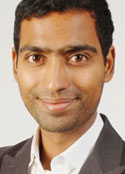 Swedish researcher Henrik Chetan Aspengren has been awarded a PhD from the Dept. of Politics and
International Studies, School of Oriental and African Studies (SOAS),
University of London, UK. The viva took place on 12 January 2010.
Examiners were Dr Vernon Hewitt, University of Bristol, and Prof. Sanjay Seth, Goldsmiths, University of London. In the thesis, entitled ”Social Imperialism – And how it was
applied in the Bombay Presidency, 1895–1925”, Aspengren deals with the
making of the ’the social’ as a space of government intervention, amid
growing urban unrest and assertive nationalism in colonial, western
India. It discusses the influence of social liberalism, and sociology,
on the local British administration in the Bombay Presidency, and the
implementation of actual projects of sanitation, housing and education. Read an abstract of the thesis.
Swedish researcher Henrik Chetan Aspengren has been awarded a PhD from the Dept. of Politics and
International Studies, School of Oriental and African Studies (SOAS),
University of London, UK. The viva took place on 12 January 2010.
Examiners were Dr Vernon Hewitt, University of Bristol, and Prof. Sanjay Seth, Goldsmiths, University of London. In the thesis, entitled ”Social Imperialism – And how it was
applied in the Bombay Presidency, 1895–1925”, Aspengren deals with the
making of the ’the social’ as a space of government intervention, amid
growing urban unrest and assertive nationalism in colonial, western
India. It discusses the influence of social liberalism, and sociology,
on the local British administration in the Bombay Presidency, and the
implementation of actual projects of sanitation, housing and education. Read an abstract of the thesis.
Dr. Aspengren is now living in Geneva, Switzerland, but is to some extent connected to the Dept. of History, Uppsala University.
• Second major Sida research grant to Professor Ashok Swain
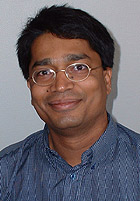 As reported in SASNET’s Newsletter 118, the Swedish International Development Cooperation
Agency, Sida, decided
upon the 2010 development research grants applications in October 2010. Several of the
projects that get funding for the period 2011–12
deal directly or partly with South Asia related research. Among them was a project on Hydropolitics and Governance of Transboundary Water coordinated by
Professor Ashok Swain (photo), Dept. of Peace and Conflict Research, Uppsala University.
As reported in SASNET’s Newsletter 118, the Swedish International Development Cooperation
Agency, Sida, decided
upon the 2010 development research grants applications in October 2010. Several of the
projects that get funding for the period 2011–12
deal directly or partly with South Asia related research. Among them was a project on Hydropolitics and Governance of Transboundary Water coordinated by
Professor Ashok Swain (photo), Dept. of Peace and Conflict Research, Uppsala University.
Now it turns out that
Prof. Swain is also involved in another research project that Sida has decided to give funding to, namely a project also receives SEK 2.7 m for a comparative project entitled ”Sustainable State-Building? – Assessing Energy Development Projects in Kosovo and Nepal”. The project, awarded SEK 3 m for the period 2011-13, is coordinated by Assistant Professor Roland Kostic at Uppsala University’s Hugo Valentin Centre and also involves Florian Krampe, Research Assistant at the Uppsala Centre for Sustainable Development (CSD), where the whole research project will be based. More information about the project.
See SASNET’s list of South Asia related projects funded
by Sida/SAREC 2010.
• Swedish universities participated in Indian student recruitment fairs
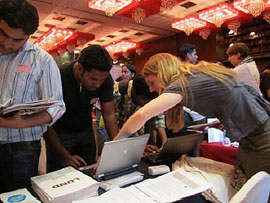 Sweden had a strong presence at the India tour of the QS World Grad School Tour 2010 that took place during the period 26 November – 7 December 2010. The QS World Grad School Tour is a prestigious Masters & PhD fair, bringing together talented prospective students with the world's best universities.
Several Swedish universities – Lund, Malmö, Uppsala, Gothenburg, Linköping, Chalmers and Linnaeus (Kalmar-Växjö) – were represented at the well-attended Indian QS recruitment fairs that took place in Delhi, Pune, Mumbai, Bangalore, Hyderabad, and Chennai. The ambition was to attract Indian students to join Masters programmes in Sweden in spite of the fact that tuition fees have been introduced at Swedish universities from 2011. The Swedish presence at the QS fairs was coordinated by the Swedish Institute (SI) that was also strongly represented at the fairs.
Lund University (LU) had seven representatives travelling to the Indian recruitment fairs. They received an overwhelming response from the visiting students, and LU hopes that a substantial number of new students will actually apply and join international masters programmes at the university.
Sweden had a strong presence at the India tour of the QS World Grad School Tour 2010 that took place during the period 26 November – 7 December 2010. The QS World Grad School Tour is a prestigious Masters & PhD fair, bringing together talented prospective students with the world's best universities.
Several Swedish universities – Lund, Malmö, Uppsala, Gothenburg, Linköping, Chalmers and Linnaeus (Kalmar-Växjö) – were represented at the well-attended Indian QS recruitment fairs that took place in Delhi, Pune, Mumbai, Bangalore, Hyderabad, and Chennai. The ambition was to attract Indian students to join Masters programmes in Sweden in spite of the fact that tuition fees have been introduced at Swedish universities from 2011. The Swedish presence at the QS fairs was coordinated by the Swedish Institute (SI) that was also strongly represented at the fairs.
Lund University (LU) had seven representatives travelling to the Indian recruitment fairs. They received an overwhelming response from the visiting students, and LU hopes that a substantial number of new students will actually apply and join international masters programmes at the university.
Read information about the Lund University delegation’s India tour.
• Successor needed for Professor Barbara Harriss-White
The School of Interdisciplinary Area Studies at Oxford University seeks applications for a full-time University Lecturership in
the Political Economy and Human Development of India. The Lecturership is tenable from 1 September
2011 or as soon as possible thereafter and will be held in conjunction with a Fellowship at Wolfson
College.
The position has till now been held by Professor Barbara Harriss-White. The closing date for applications is noon on 23 February 2011. Full information.
• Free reading in Modern South Asian Studies journal
The Editor of Modern Asian Studies, Dr Joya Chatterji, has provided a
selection of key articles from the 2010 volume free of charge until 31st
May 2011. Modern Asian Studies is a journal published by the Cambridge University Press. Highlight articles include: – 'Signs of churning?: Muslim Personal Law and public contestation in
twenty-first century India, written by Justin Jones; – Religious change, social conflict and legal competition: the emergence of
Christian personal law in colonial India, written by
Nandini Chatterjee; and – Discipline and Morale of the African, British and Indian Army units in
Burma and India during World War II: July 1943 to August 1945, written by
Kaushik Roy.
Go for the free reading.
 • Unique documentary film archive available on the net
• Unique documentary film archive available on the net
The Centre of South Asian Studies at University of Cambridge, UK, holds a sizable archive of South Asian amateur documentary films shot between 1911 and 1956. They give a unique perspective of life in South Asia towards the end of the British Empire and in the first years of independence. The film collection is now available online as streaming video in its entirety, and they may be viewed using the Centre’s website, but you will need to contact the archivist at the Centre before broadcasting any of this material in any form.
Go for this unique collection of amateur films.
• Announcement for the Director General position at National Museum in New Delhi
The Ministry of Culture, Government of India announces the position of Director General for the National Museum in New Delhi. It is a full time position on a three years contract basis. The National Museum has in its possession approximately 200,000 works of exquisite art of diverse nature, both Indian and foreign and its holdings cover a time span of more than five thousand years of cultural heritage. Applications should be submitted before Monday 14 February 2011. Read the invitation to applications (as a pdf-file)
• University of Copenhagen announces post-doc position in Asian studies
 Applications are invited for a postdoctoral position under the Asian Dynamics Initiative at the University of Copenhagen, Denmark. The position will be based at the Faculty of Humanities and is a 2-year appointment, but can be extended to 3 years, if the department in question agrees to finance one extra year. Expected date of appointment is 1 September 2011 or soon thereafter.
Seven research fields have been identified as anchor points for cutting edge research and teaching between the Social Sciences and the Humanities. It is expected that the candidates have a research project that relates to at least one of the designated research fields of the ADI which are:
Applications are invited for a postdoctoral position under the Asian Dynamics Initiative at the University of Copenhagen, Denmark. The position will be based at the Faculty of Humanities and is a 2-year appointment, but can be extended to 3 years, if the department in question agrees to finance one extra year. Expected date of appointment is 1 September 2011 or soon thereafter.
Seven research fields have been identified as anchor points for cutting edge research and teaching between the Social Sciences and the Humanities. It is expected that the candidates have a research project that relates to at least one of the designated research fields of the ADI which are:
1. Knowledge in transit
2. Security at global and local levels
3. Borders, territorialisation & regionalization
4. Belonging, citizenship and identities
5. Local responses to global challenges
6. The economics of the Asian challenge
7. Political institutions and culture
Deadline for applications is 15 February 2011.
• SAMAJ invites papers on Rethinking Urban Democracy in South Asia
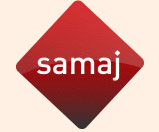 The South Asia Multidisciplinary Academic Journal (SAMAJ) invites for papers to a coming special issue of SAMAJ focusing on ”Rethinking Urban Democracy in South Asia”, dealing with South Asian megacities, where decentralization has been analysed to date in a perspective that is more managerial than political. In other words, this issue wants to question the existence, specificity and manifestations of urban democracy in contemporary South Asia. In order to address this research agenda, and to initiate a comparison, SAMAJ invites papers focusing on city-based protests around specific urban projects in one or several of South Asia's large cities, as these constitute a privileged prism through which to observe the materiality of democratic expression in South Asian megacities today: Who gets mobilized? For what? How? And with what measurable impact? Does the materiality of democratic expression take a similar shape and have the same content all over South Asian megacities? And if differences prevail, what factors are to be taken into account in order to explain them? Proposals should be submited before 28 February 2011. More information.
The South Asia Multidisciplinary Academic Journal (SAMAJ) invites for papers to a coming special issue of SAMAJ focusing on ”Rethinking Urban Democracy in South Asia”, dealing with South Asian megacities, where decentralization has been analysed to date in a perspective that is more managerial than political. In other words, this issue wants to question the existence, specificity and manifestations of urban democracy in contemporary South Asia. In order to address this research agenda, and to initiate a comparison, SAMAJ invites papers focusing on city-based protests around specific urban projects in one or several of South Asia's large cities, as these constitute a privileged prism through which to observe the materiality of democratic expression in South Asian megacities today: Who gets mobilized? For what? How? And with what measurable impact? Does the materiality of democratic expression take a similar shape and have the same content all over South Asian megacities? And if differences prevail, what factors are to be taken into account in order to explain them? Proposals should be submited before 28 February 2011. More information.
SAMAJ is a peer-reviewed journal devoted to social science research on South Asia. It specializes in the publication of comparative thematic issues as well as individual research articles, review essays, and book reviews. Committed to disseminating rigorous scientific research to the widest possible audience, SAMAJ is fully and freely accessible on line. From 2011, SAMAJ has also a collaboration agreement with the European Association of South Asian Studies (EASAS), see below.
• Apply for doctoral scholarships at Asia and Europe in a Global Context Cluster
 The Graduate Programme for Transcultural Studies (GPTS) of the Cluster of Excellence "Asia and Europe in a Global Context" at Heidelberg University, Germany, welcomes applications for
8 doctoral scholarships. GPTS is a central element of the Cluster of Excellence "Asia and Europe in a Global Context: Shifting Asymmetries in Cultural Flows". The Cluster's interdisciplinary research focuses on transcultural exchange processes within and between Asia and Europe from historical as well as contemporary perspectives. It connects methods and theories from the humanities and social sciences to challenge the eurocentrism still prevalent in scholarly discourses.
The Graduate Programme for Transcultural Studies (GPTS) of the Cluster of Excellence "Asia and Europe in a Global Context" at Heidelberg University, Germany, welcomes applications for
8 doctoral scholarships. GPTS is a central element of the Cluster of Excellence "Asia and Europe in a Global Context: Shifting Asymmetries in Cultural Flows". The Cluster's interdisciplinary research focuses on transcultural exchange processes within and between Asia and Europe from historical as well as contemporary perspectives. It connects methods and theories from the humanities and social sciences to challenge the eurocentrism still prevalent in scholarly discourses.
Applicants are expected to propose a doctoral project that can be affiliated with one of the ongoing projects at the Cluster.
Scholarships start in the winter term of 2011/12, and are granted for two years with the possibility of an extension for an additional year. Deadline for application is March 31, 2011. More information.
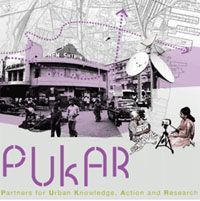 • Research Fellowships available for Indo-German project in Mumbai
• Research Fellowships available for Indo-German project in Mumbai
In December 2010, PUKAR (Partners for Urban Knowledge, Action and Research) based in Mumbai, India, initiated a new collaboration with Max Planck Institute for the Study of Religious and Ethnic Diversity in Göttingen, Germany & Tata Institute of Social Sciences (TISS) in Mumbai. The three institutions now jointly invite applications for a project entitled “Urban Religion in Mumbai”. A number of full-time Research Fellowships at both the doctoral and postdoctoral levels are offered for the 2010-11 academic year. Deadline for applications is 18 January 2011. Selected candidates are then expected to join the programme by early March, 2011.
The research study should focus on ethnographic research on various religions and their practices in the Mumbai city. An important focus of the project will be the links between media-centered religious aspirations, including its transnational ramifications, and local political and economic ambitions. Ethnographic field research will pay close attention to the transnational circulation of religious media, plus uses of the internet, which now combines all forms of audio and audiovisual media. The goal is to arrive at a better understanding of how such media practices become part of the lives and aspirations in this challenging urban setting. More information.
• PhD scholarships on Indian Philosophy at Durham
The Department of Philosophy at the University of Durham invites
applications for two PhD scholarships as part of the project Sastravid:
A New Paradigm for the Study of Indian Philosophy, funded by the
European Research Council, to be taken up from October 2011. The
successful candidates will hold a graduate degree in Philosophy or
Buddhist Studies and will work under the supervision of Dr Jan
Westerhoff on philosophical problems posed by the Indian Madhyamaka
texts to be encoded and analyzed during the project. Familiarity with
some of the relevant Asian languages (Sanskrit, Tibetan, Japanese) is
an advantage but no prerequisite. The positions are not restricted to
EU nationals, suitable candidates of any nationality are invited to
apply. More information.
• More information about South Asia related
research at Swedish and Nordic universities
See SASNET’s page, http://www.sasnet.lu.se/research.html
• Apply for MSc program in South Asia and International Development at Edinburgh
 From September 2011, the Centre for South Asian Studies at the University of Edinburgh introduces a new MSc program in South Asia and International Development. It will be the only UK postgraduate international development programme with an explicit South Asia
focus. This programme is linked to the University of Edinburgh's Global Development Academy, which fosters a dynamic
interdisciplinary community of scholars who are working in partnership throughout the world to tackle the most important issues facing
international development. Courses will provide analytical skills to help students to understand the processes that have shaped poverty and underdevelopment with particular reference to India, Pakistan, Bangladesh, Nepal and Sri Lanka. The programme is interdisciplinary, combining rigorous training in analytical and qualitative methods with an emphasis on policy and practice as they relate to international development. It has two compulsory, core courses. They are ”Politics and Theories of International Development” and ”South Asia: the Roots of Poverty and Development”.
From September 2011, the Centre for South Asian Studies at the University of Edinburgh introduces a new MSc program in South Asia and International Development. It will be the only UK postgraduate international development programme with an explicit South Asia
focus. This programme is linked to the University of Edinburgh's Global Development Academy, which fosters a dynamic
interdisciplinary community of scholars who are working in partnership throughout the world to tackle the most important issues facing
international development. Courses will provide analytical skills to help students to understand the processes that have shaped poverty and underdevelopment with particular reference to India, Pakistan, Bangladesh, Nepal and Sri Lanka. The programme is interdisciplinary, combining rigorous training in analytical and qualitative methods with an emphasis on policy and practice as they relate to international development. It has two compulsory, core courses. They are ”Politics and Theories of International Development” and ”South Asia: the Roots of Poverty and Development”. 
Contact person: Professor Patricia Jeffery (photo), MSc Programme Director, School of Social and Political Science.
Closing date for applications is 15th July 2011, but please note that it is in your interest to apply well before the closing date: Scholarship and funding schemes have different closing dates for application and generally require applicants to have a firm offer of a place at Edinburgh. The paperwork connected with visas and immigration takes time to process.
More information on the program web page
See also a poster for the programme.
• More information about South Asia related
education at Swedish and Nordic universities
See SASNET’s page, http://www.sasnet.lu.se/education.html
• Aligarh conference on Population, Resource and Environment
 A National Conference
on ”Population, Resource and Environment” will be held in Aligarh, Uttar Pradesh, India, 1–2 March 2011. It is organised by the Dept. of Geography, Aligarh Muslim University (AMU). The conference is intended to make the fruitful discussion on the following sub-themes:
A National Conference
on ”Population, Resource and Environment” will be held in Aligarh, Uttar Pradesh, India, 1–2 March 2011. It is organised by the Dept. of Geography, Aligarh Muslim University (AMU). The conference is intended to make the fruitful discussion on the following sub-themes:
– Population Composition and Population Dynamics – Fertility, Mortality and Migration.
– Population Growth, Education and Development.
– Poverty, Pollution, Health and Hygiene.
– Resource Utilization and Sustainable Development.
– Rural Urban Land Use, Biodiversity and Planning.
– Gender and Development.
– Status of Minorities in India.
– Policy and Planning Issues.
– Use of Geo-informatics in Resource Utilization and Environmental Management.
Last date of submission of abstracts is 31 January 2011.
More information.
• Tiruchirappalli Symposium on Professional Social Work
Bharathidasan University in Tiruchirappalli, Tamil Nadu, India, organizes International Symposium on Professional Social Work, on 10–11 March 2011. The Symposium, which is organized by the university’s Dept. of Social Work, aims at providing a platform for the academicians, practitioners and research scholars to discuss and reflect on various innovative practices followed in their own fields of specialization, as well as document innovative and best practices in social work education, teaching, research and extension. The main topics of the Symposium will be: – Innovations in Teaching; – Innovations in Research; and – Innovations in Extension. Interested participants and scholars can register at a reduced fee (Early bird registration) until 1 February 2011. Submission of abstracts is closed. More information.
• 4 000 participants expected to joint AAS/ICAS conference in Honolulu
![]() To celebrate its 70th anniversary, the Association for Asian Studies (AAS) is holding a special joint conference with the International Convention of Asia Scholars (ICAS) in Honolulu, Hawaii, USA, 31 March – 3 April 2011. The conference expects to draw an attendance of at least 4,000 participants, exhibitors, and visitors. (Normally the number of participants varies between thousand and fifteen hundred).
To celebrate its 70th anniversary, the Association for Asian Studies (AAS) is holding a special joint conference with the International Convention of Asia Scholars (ICAS) in Honolulu, Hawaii, USA, 31 March – 3 April 2011. The conference expects to draw an attendance of at least 4,000 participants, exhibitors, and visitors. (Normally the number of participants varies between thousand and fifteen hundred).
The Association for Asian Studies (AAS) is the largest society of its kind, with approximately 7,000 members worldwide, open to all persons interested in Asia. Its current President is Prof. K Sivaramakrishnan, Professor of Anthropology at Yale University. ICAS was launched in 1995 as a joint project between AAS and the International Institute for Asian Studies (IIAS) in Netherlands. This transatlantic dialogue gradually matured and was thought of as a process involving American and European Asia scholars. Its main goals are to transcend the boundaries between disciplines, between nations studied, and between the geographic origins of the Asia scholars involved.
ICAS has grown into the largest biennial Asia studies event outside the US covering all subjects of Asia studies. Thus ICAS now has become the only major, regular Asia studies event to take place in Asia.
Venue for the joint conference: Hawai'i Convention Center, Kalakaua Avenue, Honolulu. More information.
• International Association for Asian
Heritage conference in Colombo
 The first conference of the International Association for Asian
Heritage (IAHH) will be held 7 – 8 April 2011 in Colombo, Sri Lanka. The conference is hosted by Kelaniya University.
Members and other interested scholars on Asian Heritage are invited
to submit abstracts on the following themes before 15th February. The themes will be
– Pre and Proto history, Paleo Environment and Settlement Studies,
Field Archaeology, Conceptual and Methodological issues in Heritage
Studies; – Art History, Ancient Architecture, Epigraphy and Numismatics; – Heritage Management, Conservation, Museology and Ancient Technology; – History, Religion, Language, Traditional Medicine and intangible Heritage; and – Contemporary Asian Culture and Society. More information on IAHH’s web site.
The first conference of the International Association for Asian
Heritage (IAHH) will be held 7 – 8 April 2011 in Colombo, Sri Lanka. The conference is hosted by Kelaniya University.
Members and other interested scholars on Asian Heritage are invited
to submit abstracts on the following themes before 15th February. The themes will be
– Pre and Proto history, Paleo Environment and Settlement Studies,
Field Archaeology, Conceptual and Methodological issues in Heritage
Studies; – Art History, Ancient Architecture, Epigraphy and Numismatics; – Heritage Management, Conservation, Museology and Ancient Technology; – History, Religion, Language, Traditional Medicine and intangible Heritage; and – Contemporary Asian Culture and Society. More information on IAHH’s web site.
• Uppsala conference on Global Civil Society –
Shifting Powers in a Shifting World
 An International conference on ”Global Civil Society –
Shifting Powers in a Shifting World” will be held in Uppsala on 12–13 April 2011. It is organized by the Uppsala Centre for Sustainable Development (CSD) at Uppsala University, in cooperation with Dag Hammarskjöld Foundation and the Swedish International Development Cooperation Agency (Sida) and its Team Civil Society. Social movements and other forms of civil associations increasingly connect transnationally to mobilise political pressure, resources and other forms of support. Transnational civil society organisations and networks have also become important actors on the international political arena, striving to affect agendas and policies of UN bodies, trade organisations and corporations. These global networks have strengthened the impact of civil society actors vis-à-vis political decision-makers at local as well as national and international levels. This conference addresses these various power relations, and what effect they have on social and political change. Researchers, actors in international development cooperation, activists, and others with interest in the issues are invited to participate and make presentations.
An International conference on ”Global Civil Society –
Shifting Powers in a Shifting World” will be held in Uppsala on 12–13 April 2011. It is organized by the Uppsala Centre for Sustainable Development (CSD) at Uppsala University, in cooperation with Dag Hammarskjöld Foundation and the Swedish International Development Cooperation Agency (Sida) and its Team Civil Society. Social movements and other forms of civil associations increasingly connect transnationally to mobilise political pressure, resources and other forms of support. Transnational civil society organisations and networks have also become important actors on the international political arena, striving to affect agendas and policies of UN bodies, trade organisations and corporations. These global networks have strengthened the impact of civil society actors vis-à-vis political decision-makers at local as well as national and international levels. This conference addresses these various power relations, and what effect they have on social and political change. Researchers, actors in international development cooperation, activists, and others with interest in the issues are invited to participate and make presentations.
 Kumi Naidoo (photo) from Greenpeace International, and earlier CIVICUS, is one of the keynote speakers. He will talk about ”Power relations within global civil society: north-south and south-south cooperation”. A series of participatory parallel sessions will also be held, on Social movements in a neoliberal era: – Ethnographies of local activists in transnational networks; – Diaspora, transnational engagement and the national regimes; – Globalisation and trade union internationalism; and – The implications of the growing clout of emerging powers for civil society. The first session will be chaired by Dr. Eva-Maria Hardtmann, Department of Social Anthropology, Stockholm University.
Kumi Naidoo (photo) from Greenpeace International, and earlier CIVICUS, is one of the keynote speakers. He will talk about ”Power relations within global civil society: north-south and south-south cooperation”. A series of participatory parallel sessions will also be held, on Social movements in a neoliberal era: – Ethnographies of local activists in transnational networks; – Diaspora, transnational engagement and the national regimes; – Globalisation and trade union internationalism; and – The implications of the growing clout of emerging powers for civil society. The first session will be chaired by Dr. Eva-Maria Hardtmann, Department of Social Anthropology, Stockholm University.
Abstracts should be submitted before 10 February 2011. A few travel grants will be given for delegates from Latin America, Africa or Asia to present their papers at the conference.
Venue: Missionskyrkan, S: Olofsgatan 40, Uppsala.
Full information on the conference webpage.
• Roskilde PhD workshop on democratic deepening on inequality
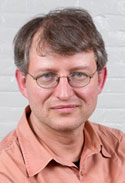 The Graduate School of International Development Studies and the Centre for International Studies in Citizenship, Democratic Participation and Civil Society (CIPACI) at Roskilde University, Denmark, invites to a PhD researcher training workshop on ”How to study the effects of democratic deepening on inequality and development in an international comparative perspective?” on 27–28 April 2011. PhD students and other interested researchers (including thesis-writing master’s students who are preparing a PhD proposal) are welcome to participate. Among the lecturers are Patrick Heller (photo), Professor of Sociology and International Studies at Brown University, USA. He will talk about ”Democratic deepening in Brazil, India and South Africa: Towards a comparative perspective”. Participants are asked to register before 21 February 2011. More information (as a pdf-file)
The Graduate School of International Development Studies and the Centre for International Studies in Citizenship, Democratic Participation and Civil Society (CIPACI) at Roskilde University, Denmark, invites to a PhD researcher training workshop on ”How to study the effects of democratic deepening on inequality and development in an international comparative perspective?” on 27–28 April 2011. PhD students and other interested researchers (including thesis-writing master’s students who are preparing a PhD proposal) are welcome to participate. Among the lecturers are Patrick Heller (photo), Professor of Sociology and International Studies at Brown University, USA. He will talk about ”Democratic deepening in Brazil, India and South Africa: Towards a comparative perspective”. Participants are asked to register before 21 February 2011. More information (as a pdf-file)
• 25th Pakistan Workshop at Rook How
The 25th Pakistan Workshop will take place at Rook How in the Lake District, UK, 6–8 May 2011. The theme for the 2011 workshop will be ”The Politics of Space”, and is supposed to bring together anthropologists and sociologists whose research involves Pakistan, Pakistani diaspora and South Asian Islam. These workshops, organised by the Pakistan Studies Group, normally also attract scholars and researchers from a broad range of disciplines including historians, political scientists, economists and applied social scientists. Due to limited places, an early registration is needed. More information
• Young South Asia Scholars Meet Workshop in Berlin
 The second annual Young South Asia Scholars Meet (Y-SASM) Workshop will be held in Berlin, Germany, 19 - 21 May 2011. The theme for the 2011 Y-SASM Workshop, to be
hosted by the South Asian Studies Seminar of the Humboldt University, will be ”Engendering and Degendering South Asian Studies”. Deadline for handing in papers is set for the 15th of febuary 2011. The first Y-SASM workshop was held at the Zentrum Moderner Orient in Berlin in July 2010. It had the declared aim of providing young South Asianists with a platform for exchange and interaction that could further the integration and proliferation of research networks across the German-speaking region and beyond.
In contrast, Y-SASM 2011 will have a thematic focus, namely gender, in order to encourage fruitful discussion.
The second annual Young South Asia Scholars Meet (Y-SASM) Workshop will be held in Berlin, Germany, 19 - 21 May 2011. The theme for the 2011 Y-SASM Workshop, to be
hosted by the South Asian Studies Seminar of the Humboldt University, will be ”Engendering and Degendering South Asian Studies”. Deadline for handing in papers is set for the 15th of febuary 2011. The first Y-SASM workshop was held at the Zentrum Moderner Orient in Berlin in July 2010. It had the declared aim of providing young South Asianists with a platform for exchange and interaction that could further the integration and proliferation of research networks across the German-speaking region and beyond.
In contrast, Y-SASM 2011 will have a thematic focus, namely gender, in order to encourage fruitful discussion.
Read the Call for Papers.
More information on the Y-SASN blog page
 • Vilnius conference on The Body in the Cinemas of South Asia
• Vilnius conference on The Body in the Cinemas of South Asia
An International conference on ”The Body in the Cinemas of South Asia” will be held at Vilnius University in Lithuania 30 June – 2 July 2011. It is being organised by the university’s Centre of Oriental Studies, and aims at bringing together and promoting dialogue between scholars based in Western European countries, Asia and the US, and scholars from Eastern Europe. Papers focusing on popular South Asian cinemas and discussions of what ‘exploitation cinema’ is or might be in industrial contexts are invited. Deadline for abstracts is 15 April 2011. More information.
• Thimphu conference on Mountains in South Asian Religion
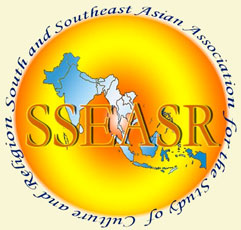 The 4th SSEASR (South and Southeast Asian Association for the Study of Culture and Religion) Conference, with the theme ”Mountains in the Religions of South and Southeast Asia: Place, Culture, and Power” will be held in Thimphu, Kingdom of Bhutan, on 30 June – 3 July 2011. The conference will be hosted and co-organised by the Institute of Language and Culture Studies, Royal University of Bhutan (RUB), Thimphu. It will also be held as a Regional Conference of the The International Association for the History of Religions (IAHR), an organisation that seeks to promote the activities of all scholars and affiliates that contribute to the historical, social, and comparative study of religion. The purpose is to nurture the highest forms of scholarly dialogue among scholars from all parts of South and Southeast Asia, but scholars from all over the world are equally welcome. Deadline for registration is 15 February 2011. More information.
The 4th SSEASR (South and Southeast Asian Association for the Study of Culture and Religion) Conference, with the theme ”Mountains in the Religions of South and Southeast Asia: Place, Culture, and Power” will be held in Thimphu, Kingdom of Bhutan, on 30 June – 3 July 2011. The conference will be hosted and co-organised by the Institute of Language and Culture Studies, Royal University of Bhutan (RUB), Thimphu. It will also be held as a Regional Conference of the The International Association for the History of Religions (IAHR), an organisation that seeks to promote the activities of all scholars and affiliates that contribute to the historical, social, and comparative study of religion. The purpose is to nurture the highest forms of scholarly dialogue among scholars from all parts of South and Southeast Asia, but scholars from all over the world are equally welcome. Deadline for registration is 15 February 2011. More information.
• 15th Ladakh Studies conference in Aberdeen
 The 15th Conference of the International Association for Ladakh Studies will be held at the University of Aberdeen, UK from 24 to 28 August 2011. The central theme of the conference is defined as ‘Responding to Climate, Biodiversity and Resource Changes in Ladakh and the Western Himalaya’. Ladakh, together with the adjacent Western Himalayan regions of Baltistan, Lahaul, Spiti and Western Tibet, has for much of the last century existed on an unstable fault line between crucial cultural, religious and political blocs of South and Central Asia. Lying in the rain-shadow of the Greater Himalaya, these regions are now experiencing freak weather events more associated with the Indian monsoon.
The 15th Conference of the International Association for Ladakh Studies will be held at the University of Aberdeen, UK from 24 to 28 August 2011. The central theme of the conference is defined as ‘Responding to Climate, Biodiversity and Resource Changes in Ladakh and the Western Himalaya’. Ladakh, together with the adjacent Western Himalayan regions of Baltistan, Lahaul, Spiti and Western Tibet, has for much of the last century existed on an unstable fault line between crucial cultural, religious and political blocs of South and Central Asia. Lying in the rain-shadow of the Greater Himalaya, these regions are now experiencing freak weather events more associated with the Indian monsoon.
Centred on the Indus Valley, the region, which is also home to rare species of flora and fauna constituting a globally important biodiversity, has been substantially affected by recent economic development and population shifts occurring all along the Himalayan massif, and faces a challenging future. Changes in climate, rainfall and biodiversity have had a dramatic impact on human habitation, resource use and the prospects for cultural and economic development in the area and its environs.
This conference will bring together a multidisciplinary range of scholars, scientists and local specialists to examine not only the changes themselves, but the social, economic and political responses to them. Deadline for submitting abstracts is 1 February 2011. More information.
• 17th Himalayan Languages Symposium (HLS) will be held in Kobe
 The 17th Himalayan Languages Symposium (HLS) will be held in Kobe, Japan, 6–9 September 2011. It is being hosted by Kobe City University of Foreign Studies, on behalf of the Forum for Scholars of Himalayan Languages. HLS is an annually convening, open scholarly forum for scholars of Himalayan languages. Contributions are welcome on any language of the greater Himalayan region, e.g. Burushaski, Kusunda, Tibeto-Burman, Indo-Iranian, Austroasiatic, Kradai, Andamanese, Nahali, Dravidian or any other language of the area. In addition to linguistic presentations, contribution are also welcome from related disciplines such as history, anthropology, archaeology and prehistory. The forum is secular and scholarly and not open to political or religious contributions. Deadline of submitting abstracts is 15 April 2011. More information.
The 17th Himalayan Languages Symposium (HLS) will be held in Kobe, Japan, 6–9 September 2011. It is being hosted by Kobe City University of Foreign Studies, on behalf of the Forum for Scholars of Himalayan Languages. HLS is an annually convening, open scholarly forum for scholars of Himalayan languages. Contributions are welcome on any language of the greater Himalayan region, e.g. Burushaski, Kusunda, Tibeto-Burman, Indo-Iranian, Austroasiatic, Kradai, Andamanese, Nahali, Dravidian or any other language of the area. In addition to linguistic presentations, contribution are also welcome from related disciplines such as history, anthropology, archaeology and prehistory. The forum is secular and scholarly and not open to political or religious contributions. Deadline of submitting abstracts is 15 April 2011. More information.
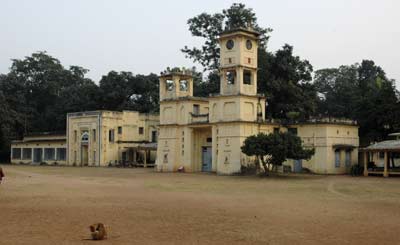 |
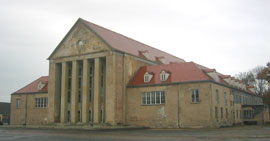 |
• Shantiniketan-Hellerau conference at Humboldt University
The Seminar for South Asian Studies at Humboldt University in Berlin, Germany, organises an international conference entitled ”Shantiniketan-Hellerau: Universalist Education in the Pedagogical Province“ on 7– 8 October 2011. The conference is held in commemoration of the 150th birth anniversary of Rabindranath Tagore (1861-1941).
In 1908-09 the factory owner Karl Schmidt founded the garden city of Hellerau, today a suburb of Dresden, in Germany. The ideological founders of the garden cities called for a move away from the urban towards the rural where one could live a life that was healthier and closer to nature.
Scarcely ten years earlier in 1901, Rabindranath Tagore, who went on to receive the Nobel Prize for Literature in 1913, had founded the ashram school “Shantiniketan” or “abode of peace” near the village of Bolpur, around 150 km north of Calcutta. Here, far removed from the noise and “vice” of the large city, he envisioned the pupils learning and being taught in the spirit of a new life-centered education.
Appraising these evidently similar developments, the question arises how deep the reciprocal relationship between the cultural institutions was and in what way they actually influenced each other.
This conference hopes to bring together scholars who are interested in taking up some of these questions. Abstracts should have been submitted before 31 December 2010. More information.
• 11th Asian Urbanization International Conference in Hyderabad
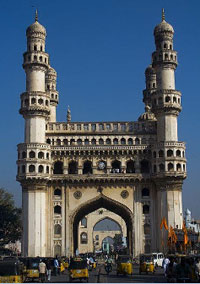 The 11th Asian Urbanization International Conference will be held in Hyderabad, India, 10 – 13 December 2011. It is being hosted by the Dept. of Geography at Osmania University, in association with The Asian Urban Research Association (AURA). AURA was established in January 1986 and is housed in the University of Akron, Ohio, USA. It is a non profit and private research organization whose primary purpose is to promote the study of urbanization, urban growth and to organize Asian Urbanization Conferences. The first Asian Urbanization Conference was held at the University of Akron in 1985. The conferences are biennial (held every other/alternate year) and have resulted in many publications. Deadline for submitting abstracts is 30 March 2011. More information.
The 11th Asian Urbanization International Conference will be held in Hyderabad, India, 10 – 13 December 2011. It is being hosted by the Dept. of Geography at Osmania University, in association with The Asian Urban Research Association (AURA). AURA was established in January 1986 and is housed in the University of Akron, Ohio, USA. It is a non profit and private research organization whose primary purpose is to promote the study of urbanization, urban growth and to organize Asian Urbanization Conferences. The first Asian Urbanization Conference was held at the University of Akron in 1985. The conferences are biennial (held every other/alternate year) and have resulted in many publications. Deadline for submitting abstracts is 30 March 2011. More information.
• Other conferences connected to South Asian
studies all over the World
See SASNET’s page, http://www.sasnet.lu.se/conferences.html#conf
Important lectures and seminars in Scandinavia
• Copenhagen seminar on Islamist discourses of the Jamia Hafsa-Lal Masjid Movement
During the spring 2011, the Pakistan Studies Network in Denmark organises a series of seminars at Copenhagen University. On Thursday 20 January, at 17.00, PhD candidate Iram Asif from the Dept. of History of Religions,
lectures on ”Jihadi Tarrane (political odes) in the Islamist discourses of the Jamia Hafsa-Lal Masjid Movement”, where she will present her ongoing research work on the Jamia Hafsa women. Venue: Dept. of History of Religions, Artillerivej 86, Copenhagen (in the meeting room on the ground floor).
• CBS lecture on Dharma and Everyday Contemporary Culture in India
Professor Samuel Parker, University of Washington, USA, holds a lecture at Copenhagen Business School (CBS) on Thursday 10 February 2011, 15.30–17.00. He will talk about ”Dharma and Everyday Contemporary Culture in India”, examining the heart of India’s morality and values using the concept of “dharma,” often inadequately translated as simply “religion” or “righteousness.” Prof. Parker holds a PhD in Cultural Anthropology awarded by the University of Chicago, however his work straddles the disciplines of Asian and Pacific art history and cultural anthropology. He has conducted fieldwork in India and Bali where his primary area of focus has been on contemporary practices of Hindu temple construction. Recently he has been working on the contemporary framing of ancient Hindu monuments by the institutions of cultural tourism in India. Venue for the seminar: Room SV108, CBS, Dalgas Have 15, Frederiksberg. All are welcome, but registration is needed. More information.
• Information about South Asia related lectures and seminars
See SASNET's page, http://www.sasnet.lu.se/conferences.html
Business and Politics
• Information about South Asia related business and politics in Sweden
See SASNET's page, http://www.sasnet.lu.se/polbuss.html
South Asia related culture in
Scandinavia
•
Six Indian films at 34th Gothenburg Film Festival
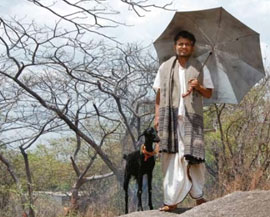 The 34th Göteborg International Film Festival, from 28 January tilll Monday 7 February 2011, will show six Indian movies. Since 12 years the festival cooperates with the Swedish International Development Cooperation Agency, Sida, that has a fund supporting film makers living and working in developing countries. For the 2011 festival, the board of the Sida fund selected to support 12 films, among them the Indian director Murali Nair’s Hindi language film ”Virgin Goat” (photo above).
The 34th Göteborg International Film Festival, from 28 January tilll Monday 7 February 2011, will show six Indian movies. Since 12 years the festival cooperates with the Swedish International Development Cooperation Agency, Sida, that has a fund supporting film makers living and working in developing countries. For the 2011 festival, the board of the Sida fund selected to support 12 films, among them the Indian director Murali Nair’s Hindi language film ”Virgin Goat” (photo above).
 The other Indian films to be shown in Gothenburg are ”Riding the Dreams” (photo) made by Girish Kasaravalli (in Kannada language); ”Autumn – Harud” made by Kashmiri director Aamir Bashir (in Urdu); ”The Image Threads” made by Vipin Vijay (in Malayalam); ”Udaan” made by Vikramaditya Motwane (in Hindi); and Indo-British co-production ”Pink Saris” made by Kim Longinotto (in Hindi).
The other Indian films to be shown in Gothenburg are ”Riding the Dreams” (photo) made by Girish Kasaravalli (in Kannada language); ”Autumn – Harud” made by Kashmiri director Aamir Bashir (in Urdu); ”The Image Threads” made by Vipin Vijay (in Malayalam); ”Udaan” made by Vikramaditya Motwane (in Hindi); and Indo-British co-production ”Pink Saris” made by Kim Longinotto (in Hindi).
More information on the 2011 Gothenburg International Film Festival.
• More information about South Asia related culture
in Sweden/ Scandinavia
See SASNET’s page, http://www.sasnet.lu.se/culture.html
New and updated items on SASNET web site
• Swedish departments where research on
South Asia is going on:
Constantly added to the list of research environments at Swedish
universities, presented by SASNET. The full list now includes 275 departments,
with detailed descriptions of the South Asia related research and education
taking place! Go to http://www.sasnet.lu.se/environment.html
ƒ IMEGO (Institute of Micro and Nanotechnology in Gothenburg)
ƒ Division of Molecular Structural Biology, Department of Medical Biochemistry and Biophysics (MBB), Karolinska Institutet, Stockholm
ƒ Swedish National Defence College (SNDC, Försvarshögskolan), Stockholm
• Useful travelling information
Look at http://www.sasnet.lu.se/travelling.html.
Updated travel advises from the The British Foreign & Commonwealth
Office about safety aspects on travelling to the countries of
South Asia. Recent changed information on Afghanistan, Bangladesh and Pakistan.
• New interesting South Asia research related books
Go for the extensive list of research departments at universities worldwide focusing on South Asia, a unique service by SASNET.
http://www.sasnet.lu.se/newbooks.html
Among them are:
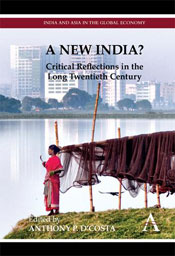 – A New India?: Critical Reflections
in the Long Twentieth Century, volume edited by Anthony D'Costa, Professor in Indian Studies and Research Director at the Asia Research Centre, Copenhagen Business School, Denmark. It is a critical examination of the notion of a ‘new’ India by exposing the many economic, social, and political contradictions that are integral to contemporary India, aimed at scholars and advanced students of contemporary India, comparative politics, and development studies.
– A New India?: Critical Reflections
in the Long Twentieth Century, volume edited by Anthony D'Costa, Professor in Indian Studies and Research Director at the Asia Research Centre, Copenhagen Business School, Denmark. It is a critical examination of the notion of a ‘new’ India by exposing the many economic, social, and political contradictions that are integral to contemporary India, aimed at scholars and advanced students of contemporary India, comparative politics, and development studies.
– Pakistan – Upprorens land by Dr. Henrik Chetan Aspengren, Dept. of History, Uppsala University, who has lived for a long period in Pakistan. In his Swedish language book, the author mixes
writings on South Asian history with travel writing. Through detailed
descriptions on life in, for example, a Sufi-shrine in Sindh, or a
village of land less peasants in Malakand close to the border between
Pakistan and Afghanistan, Aspengren discusses a wide range of topics:
the Pakistani military’s role in politics; struggles for women’s rights,
democracy, or land rights; religious tolerance and extremism. As such,
the book provides social and historic context to events reported in
the news. Norstedts, April 2011.
– Post-War Reconstruction in Sri Lanka: Prospects and Challenges, edited by Dr Dhammika Herath, Dr. Kristine Höglund, Dr. Michael Schulz, and Prof. K.T Silva. Launched in December 2010 by the International Center for Ethnic Studies, it consists of a collection of papers from the first ever (SASNET funded) conference on “Peace and Development in Sri Lanka” which took place in Kandy, 23-25 August 2009.
– Struggle Against the State.
Social Network and Protest Mobilization in India. By Ashok Swain, Professor of Peace and Conflict Research, Uppsala University , demonstrates how displaced people mobilize to protest with the help of their social networks. Studying protests against large industrial and development projects, Swain compares the mobilization process between a traditionally protest rich and a protest poor region in India to explain how social network structures are a key component to understand this variation.
– Power and politics in the shadow of Sri Lanka's armed conflict. Report edited by Dr. Camilla Orjuela, School of Global Studies, University of Gothenburg, with chapters written by Dr. Sunil Bastian, Dr. Sepali Kottegoda and Prof. Jayadeva Uyangoda.
It discusses the development in the country after the defeat of the Liberation Tigers of Tamil Eelam (LTTE) in May 2009, that brought Sri Lanka's 26 year long civil war to an end.
– Curfewed Night: A Frontline Memoir of Life, Love and War in Kashmir, by Basharat Peer. Gives a unique insight into life in a conflict zone, the writer’s own upbringing
and life as a child and youngster. It is also the beautifully written
report of a journalist who returns to the valley and tries to understand
how the conflict has influenced people. This he does by traveling around
and meeting people – people who have been affected by the war in some
particular way, including his own familiy members..
Best regards
Lars Eklund
deputy director/webmaster
SASNET/Swedish South Asian Studies Network
SASNET is a national network for research, education, and information about South Asia based at Lund University. Its aim is to promote a dynamic networking process in which Swedish researchers co-operate with researchers in South Asia and globally.
The SASNET network is open to all the sciences. Priority is given to interdisciplinary cooperation across faculties, and more particularly to institutions in the Nordic countries and South Asia. SASNET believes that South Asian studies will be most fruitfully pursued as a cooperative endeavour between researchers in different institutions who have a solid base in their mother disciplines.
The network is financed by Lund
University.
Postal address: SASNET – Swedish South Asian Studies Network,
Scheelevägen 15 D, SE-223 70 Lund, Sweden
Visiting address: Ideon Research Park, House Alpha 1 (first floor,
room no. 2040), in the premises of the Centre for East and South
East Asian Studies at Lund University (ACE).
Phone: + 46 46 222 73 40
Fax: + 46 46 222 30 41
E-mail: sasnet@sasnet.lu.se
Web site:
http://www.sasnet.lu.se
SASNET - Swedish South Asian Studies Network/Lund
University
Address: Scheelevägen 15 D, SE-223 70 Lund, Sweden
Phone: +46 46 222 73 40
Webmaster: Lars Eklund
Last updated
2011-04-08
